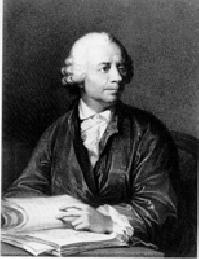Leonhard Euler
Euler, Leonhard
Leonhard Euler (1707-1783), a Swiss mathematician, is considered among the most prolific and influential mathematicians of all time. He published over 800 papers in his lifetime and won the prestigious Paris Academy Prize 12 times. Euler systematized mathematics by introducing the symbols "e", the base of the natural logarithm, "i", the imaginary number, and "f(x)" for f as a function of x. Euler made important contributions to geometry, calculus, and number theory. He integrated Leibniz's differential calculus and Newton's method of fluxions into mathematical analysis. He introduced beta and gamma functions, and integrating factors for differential equations. In number theory, Euler proved that the divergence of the harmonic series implied an infinite number of Primes, he factored the fifth Fermat number (thus disproving Fermat's conjecture), and showed that "e" was irrational. Euler also studied continuum mechanics, lunar theory with Clairaut, the three-body problem, elasticity, acoustics, the wave theory of light, hydraulics, and music.
Further Reading
Euler - Biography (University of St. Andrews, Scotland, School of Mathematics and Statistics)
Leonhard Euler - Biography (PlanetMath)

0 Comments